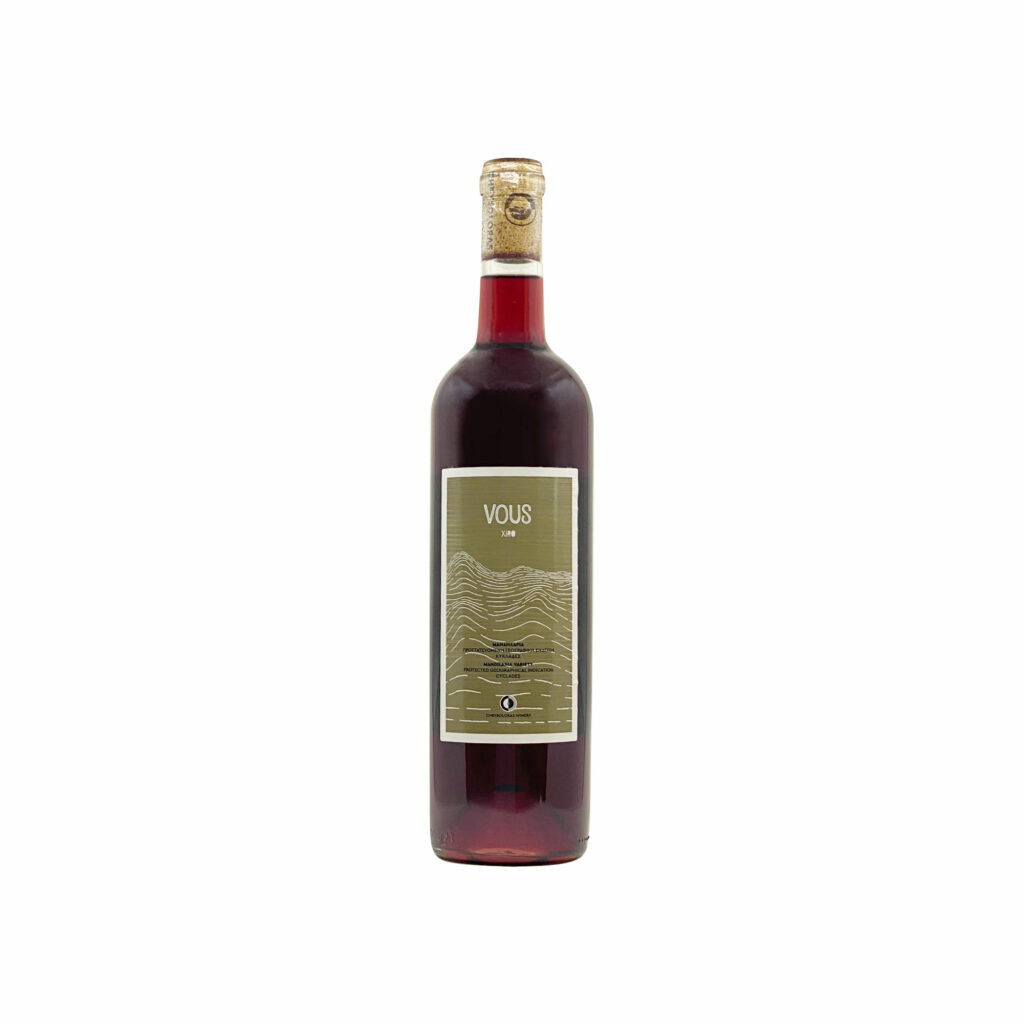Christos Chrysoloras was born and raised on the Cycladic island of Serifos, where he lived his entire life. He learnt the local art of viticulture from his father, a legacy that stretches back to Christos’ great grandfather.
Christos’ vineyards are certified organic, but his methods come close to “no-farming“. Zero training and lack of irrigation, force the ground crawling vines to develop natural defenses under the hot Cycladic sun, while the canopy protects the grapes from the island’s strong winds and cruel sun rays. Phylloxera never reached the island, so most vines are ungrafted. The vineyards are on steep and quite inaccessible slopes, arranged in terraces, so mules are employed at harvest.
Christos’ winery was created in 2015, although he was producing bulk wine for many years before. He is first and foremost a farmer, but the vigor in his grapes always shines through, regardless of the vinification. His wines have a pure expression of raw power, with chunky textures, and high alcohol. We expect to see increasingly exciting things from this kind of vineyard work and such a wild terroir.


